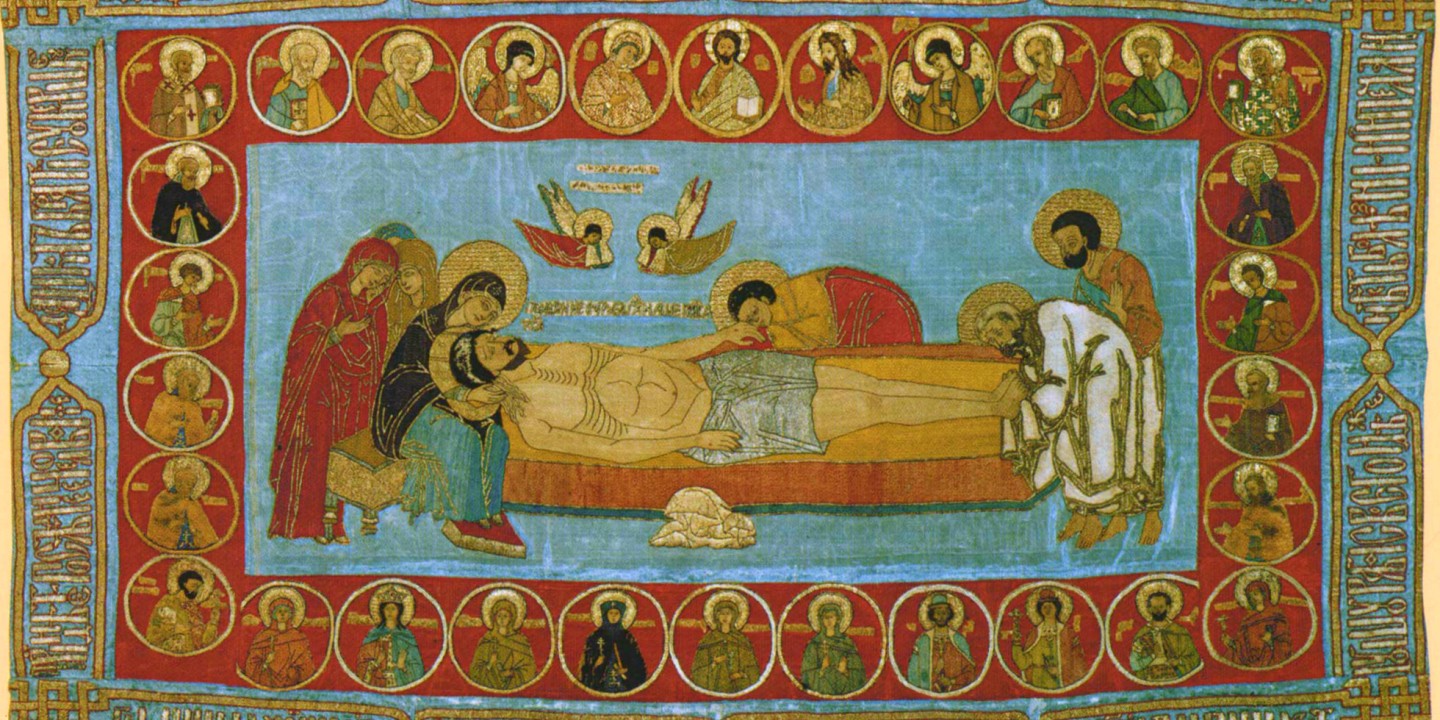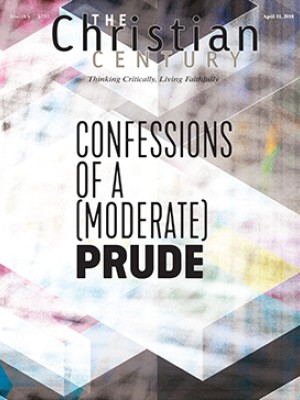Learning to embrace the in-between time
Good Friday gives way to Easter. We live our lives on Holy Saturday.

For a while now, I’ve been living in a state of in-between. My daughter has turned 18 and left for college, but I’m still learning to say good-bye to my baby girl. My son has received a chronic migraine diagnosis, but my husband and I have not yet found him effective treatment. I have left the conservative faith of my upbringing, but progressive Christianity doesn’t yet feel like home.
It hasn’t been easy, this in-between time. I’ve wrestled and complained—hungry to arrive, to find closure, to move seamlessly from before to after. It’s a familiar struggle for Christians. Though the life of faith is often described in terms of joyful arrivals and culminations, in reality we spend a lot of our time in between. Though we know that Good Friday gives way to Easter, we live our lives on Holy Saturday, waiting for the fullness of resurrection’s promise to unfold. Sometimes it feels as if the whole planet is straining with impatience, yearning for something better. Sometimes I wonder if in-betweenness is the quintessential human condition.
Read our latest issue or browse back issues.
In his poem “For the Interim Time,” John O’Donohue describes in-between as a familiar place that no longer looks like itself. “Everything is withheld,” he writes, “and the way forward is still concealed.” Interim time, in other words, is disorienting. The God we think we know suddenly becomes unfamiliar. The paths we’re used to walking grow strange. We wander and stumble, feeling lost, exiled, or punished.
Part of the problem is that our culture doesn’t train us to navigate interim time gracefully. I’m primed to expect instant gratification in daily life. I can order just about anything and find it on my doorstep 24 hours later. I can send a message across the ocean almost instantaneously. I have 24/7 access to information, health care, nourishment, and shelter. In this cultural economy, a delay feels like a waste of time. A delay feels like a valid reason to doubt the love of God.
And yet in the Bible interim time is not only the norm, it’s nearly a necessary human vocation. The pattern for God’s people is a pattern of waiting. Adam waits for a partner; Noah waits for the flood waters to recede; Abraham waits for a son; Jacob waits to marry Rachel; Hannah waits for Samuel. The Israelites wait for deliverance. Jesus waits to begin his public ministry.
Maybe what we need is not an end to interim time but a greater willingness to mine its treasures. What can God teach us in the in-between periods of our lives that we can’t learn at other times?
One thing I’m learning is to receive God as God really is. It has taken me years to recognize how my insistence on quick answers and easy resolutions distorts my perception of the divine. Waiting through interim times forces me to consider the possibility that God is wilder, less predictable, and less safe than my short-term needs and hungers dictate. It compels me to seek God’s presence in lonelier, darker places—not merely in the light of arrival and closure. The God of the interim doesn’t exist for my comfort; the God of the interim simply is. To accept this is both painful and necessary.
I’m also learning to accept reality as it is—to live intentionally in the life I have now, instead of putting my heart on hold until circumstances improve. “To receive reality is always to ‘bear it,’” writes Richard Rohr, “to bear with reality for not meeting all of our needs. To accept reality is to forgive reality for being what it is.” As I grieve the end of my daughter’s childhood, as I walk with my son through chronic pain, as I stumble my way into a new expression of faith, I am compelled to receive reality with open hands—to receive, forgive, and cherish it—instead of pummeling it to the ground with closed fists.
Finally, I’m learning to accept who I really am. When my heart is clamoring, when the “give me, give me, give me” prayers are pouring out of me at a hundred miles an hour, I am clenched, unreceptive, and ungenerous. I lose the capacity to make use of my own resources. I become willfully helpless, and my thinking loses agency and nuance. Interim times force me to slow down, to listen, and to wait. They invite me to accept both my glory and my brokenness as gifts I can give back to God.
“Listen to your life,” says Frederick Buechner. “See it for the fathomless mystery it is. In the boredom and pain of it, no less than in the excitement and gladness; touch, taste, smell your way to the holy and hidden heart of it, because in the last analysis all moments are key moments, and life itself is grace.” One of the great gifts of Christianity is that nothing needs to be wasted. Everything—every pause, every wait, every seemingly uneventful hour—is shot through with the sacred.
The end of O’Donohue’s poem warns us not to lose confidence during interim times, but to remain patient and open to renewal:
What is being transfigured here is your mind,
And it is difficult and slow to become new.
The more faithfully you can endure here,
The more refined your heart will become
For your arrival in the new dawn.
I hope that in-betweenness loosens us, frees us, transfigures us, and refines us. I hope it prepares us slowly and surely for the dawn that awaits. And I hope most of all that after each new arrival, we will venture boldly into the richness of the in-between once again.
A version of this article appears in the print edition under the title “In-between.”






